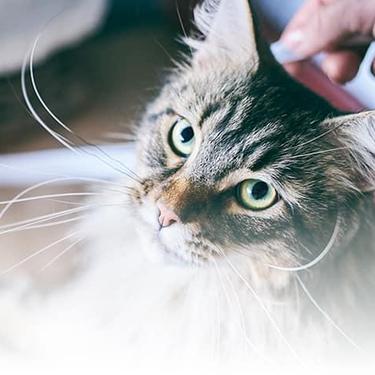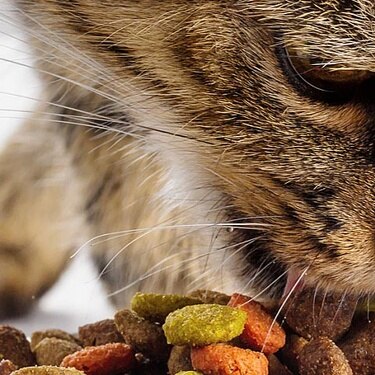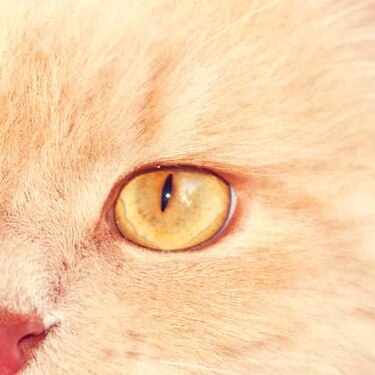
-
Find the right food for your petTake this quiz to see which food may be the best for your furry friend.Find the right food for your petTake this quiz to see which food may be the best for your furry friend.Featured products
 Adult Wet Dog Food with Beef
Adult Wet Dog Food with BeefHill's Science Plan Adult Multipack Wet Dog Food with Chicken, Beef & Turkey are complete premium pet foods for adult dogs from 1 year. Your dog will love these deliciously smooth and savoury minced loaves, formulated for balanced nutrition and overall health.
Shop Now Mature Adult Dog Food
Mature Adult Dog FoodHill's Science Plan Mature Adult Multipack Wet Dog Food with Chicken & Beef are complete premium pet foods for mature adult dogs from 7 years. Your dog will love these deliciously smooth and savoury minced loaves, formulated to deliver the appropriate amount of energy to support the needs of adult dogs.
Shop Now Puppy Food
Puppy FoodHill's Science Plan Puppy Multipack Wet Dog Food with Chicken & Beef are complete premium pet foods for growing puppies from weaning until 1 year old and for pregnant and nursing dogs. Your puppy will love these deliciously smooth and savoury minced loaves, formulated for balanced nutrition and overall health.
Shop NowFeatured products Hairball & Perfect Coat Adult Dry Cat Food with Chicken
Hairball & Perfect Coat Adult Dry Cat Food with ChickenHill's Science Plan Hairball & Perfect Coat Adult Cat Food with Chicken is formulated to effectively help avoid hairball formation in adult cats while promoting a beautiful coat. Thanks to its mix of essential omega-6 fatty acids, this food benefits the cat's skin and fur, keeping them healthy and shiny. Our Advanced Fibre Technology helps reduce hairballs by naturally promoting their passage through the gut. This food is formulated with high-quality protein for a perfectly balanced, great-tasting recipe.
Shop Now Sensitive Stomach & Skin Adult Cat Food
Sensitive Stomach & Skin Adult Cat FoodHill's Science Plan Sensitive Stomach & Skin Adult Wet Cat Food with Turkey is a complete pet food for adult cats, aged 1–6 years. This highly digestible wet food comes in a pouch and supports healthy digestion, as well as nourishes skin and promotes a thick and lustrous coat.
Shop Now Sterilised Adult Cat Food
Sterilised Adult Cat FoodHill's Science Plan Adult Sterilised Cat Dry Food with Salmon is specially formulated with ActivBiome+ Multi-Benefit Technology. It is a precisely balanced nutrition, tailored to meet the needs of sterilised cats, to help keep them lean & healthy.
Shop Now -
Dog
- Dog Tips & Articles
-
Health Category
- Weight
- Food & Environmental Sensitivities
- Urinary
- Digestive
- Joint
- Kidney
-
Life Stage
- Puppy Nutrition
- Adult Nutrition
- Senior Nutrition
Cat- Cat Tips & Articles
-
Health Category
- Weight
- Skin & Food Sensitivities
- Urinary
- Digestive
- Kidney
-
Life Stage
- Kitten Nutrition
- Adult Nutrition
Featured articles The Incredible Science Behind Your Pet's Microbiome
The Incredible Science Behind Your Pet's MicrobiomeLearn what your pet's microbiome is, how it contributes to your pet's gut and overall health, and why nutrition is important in maintaining healthy microbiomes.
Read More Show some love with wet foods: a great choice for pets with health issues
Show some love with wet foods: a great choice for pets with health issuesShow some love with wet foods: a great choice for pets with health issues.
Read More The Right Diet For Your Pet
The Right Diet For Your PetIn people, the right diet is very important. If you are eating the wrong way for your metabolism, activity level, age and lifestyle you could end up with health issues.
Read More -


These days, with a global trend for humans and animals to be overweight, it’s easy to be focused on avoiding weight gain for your cat. However, unexplained weight loss is really important too, and can be one of the earliest signs of disease or illness. If you think your cat is losing weight, and it’s not because your vet has put them on a weight loss regime, then the sooner you act the better.
The importance of monitoring weight
This can’t be stressed enough. Weight gain and loss can both be signs of ill health and, as with all things when it comes to health, the sooner you notice when something is wrong, the sooner you can get help. Cats are good at hiding signs of illness, so sometimes by the time you see overt signs, the disease may be quite advanced. Spotting those early weight changes can make all the difference.
Even if your cat is healthy and is only losing weight because they just don’t like the new flavour of food you bought (or getting fat for the opposite reason!), being under- or overweight can still have a knock-on effect on their health.
From a young age, it’s wise to get your cat used to being weighed. Your vet will do this every time you visit the surgery but, as many cats find travel and vet visits a little stressful, if you get into the habit of weighing them at home you’ll both be used to it.
If your cat is pretty laid-back, you can simply place them on the bathroom scales if they will stay still long enough. Alternatively, weigh them in their cat basket and then subtract the weight of the basket. Remember to include any bedding in the sums as well. There is also the option to weigh yourself and then stand on the scales holding your cat, if they are relaxed enough to be picked up. Again, the more you make this a regular routine, the happier your cat will be. Every two weeks as a kitten, and monthly as an adult, are good intervals to use.


Tasty Tips
Causes of weight loss in cats
There are dozens of conditions and circumstances that can cause weight loss in cats. Here are some of the most common:
Kidney disease. Again, this is a common finding in middle-aged to older cats. One of the earliest signs may be weight loss. You may also notice your cat is drinking more than usual and may be off their food.
Parasites. Although heavy worm burdens are uncommon these days, they are still a potential cause of weight loss. Your vet will be able to advise on good preventative health measures for your cat’s age and lifestyle. If they regularly hunt, they may need treating more often.
Hyperthyroidism. This is a common disease in middle-aged to older cats. An overactive thyroid gland increases the metabolism. Your cat may eat well and even be ravenous but still lose weight. Cats with hyperthyroidism are often hyperactive and can become aggressive.
Cancer. Many types of cancer are not painful and can be difficult to spot. Weight loss is a very common first sign and may be the only thing you notice.
Gastrointestinal problems. Chronic enteropathies, adverse food reactions and other GI diseases can cause weight loss because your cat won’t be getting all the nutrients they need from their food.
Diabetes. Although we often associate diabetes with fat cats, weight loss is one of the most common signs once diabetes gets a hold.
Tooth or mouth pain. Dental disease is more common than you might imagine. Pain in the mouth or gums may put your cat off eating and cause weight loss.
Stress. Stressful things like conflict with other cats in the house may stop your cat eating enough to stay a healthy weight.
Not all of the causes of weight loss in cats are serious, but you can see that some most certainly are. The more you know what is normal for your cat, the sooner you’ll spot problems. Any unintended weight loss should prompt a visit to your vet. They may find an obvious problem or may need to dig a little deeper with blood or urine tests. Either way, you’ll get to the bottom of the issue and get any treatment that’s needed as soon as possible.
Reviewed by Dr. Hein Meyer, DVM, PhD, Dipl-ECVIM-CA


One of our staff authors prepared this article for you
Related products

Hill's Science Plan Perfect Digestion Cat Food with Chicken & Brown Rice nourishes your cat's unique microbiome and helps them reach their full potential.

Hill's Science Plan Hairball & Perfect Coat Adult Cat Food with Chicken is formulated to effectively help avoid hairball formation in adult cats while promoting a beautiful coat. Thanks to its mix of essential omega-6 fatty acids, this food benefits the cat's skin and fur, keeping them healthy and shiny. Our Advanced Fibre Technology helps reduce hairballs by naturally promoting their passage through the gut. This food is formulated with high-quality protein for a perfectly balanced, great-tasting recipe.

Hill's Science Plan Sensitive Stomach & Skin Adult Wet Cat Food with Turkey is a complete pet food for adult cats, aged 1–6 years. This highly digestible wet food comes in a pouch and supports healthy digestion, as well as nourishes skin and promotes a thick and lustrous coat.

Hill's Science Plan Adult Sterilised Cat Dry Food with Salmon is specially formulated with ActivBiome+ Multi-Benefit Technology. It is a precisely balanced nutrition, tailored to meet the needs of sterilised cats, to help keep them lean & healthy.
Related articles

There are three common ways to feed a cat. Each way has its advantages and disadvantages.

Learn how to make homemade cat treats that are healthy for your pet with this recipe from Hills Pet Nutrition.

From essential vitamins & minerals to different types of meat, learn what to look for when choosing the best cat food for your feline.

Chocolate is known to be poisonous for dogs, but it can also be toxic for cats. Learn why chocolate is bad for cats & what to do if she's eaten it.

Put your cat on a diet without them knowing
Our low calorie formula helps you control your cat's weight. It's packed with high-quality protein for building lean muscles, and made with purposeful ingredients for a flavourful, nutritious meal. Clinically proven antioxidants, Vitamin C+E, help promote a healthy immune system.
Put your cat on a diet without them knowing
Our low calorie formula helps you control your cat's weight. It's packed with high-quality protein for building lean muscles, and made with purposeful ingredients for a flavourful, nutritious meal. Clinically proven antioxidants, Vitamin C+E, help promote a healthy immune system.

